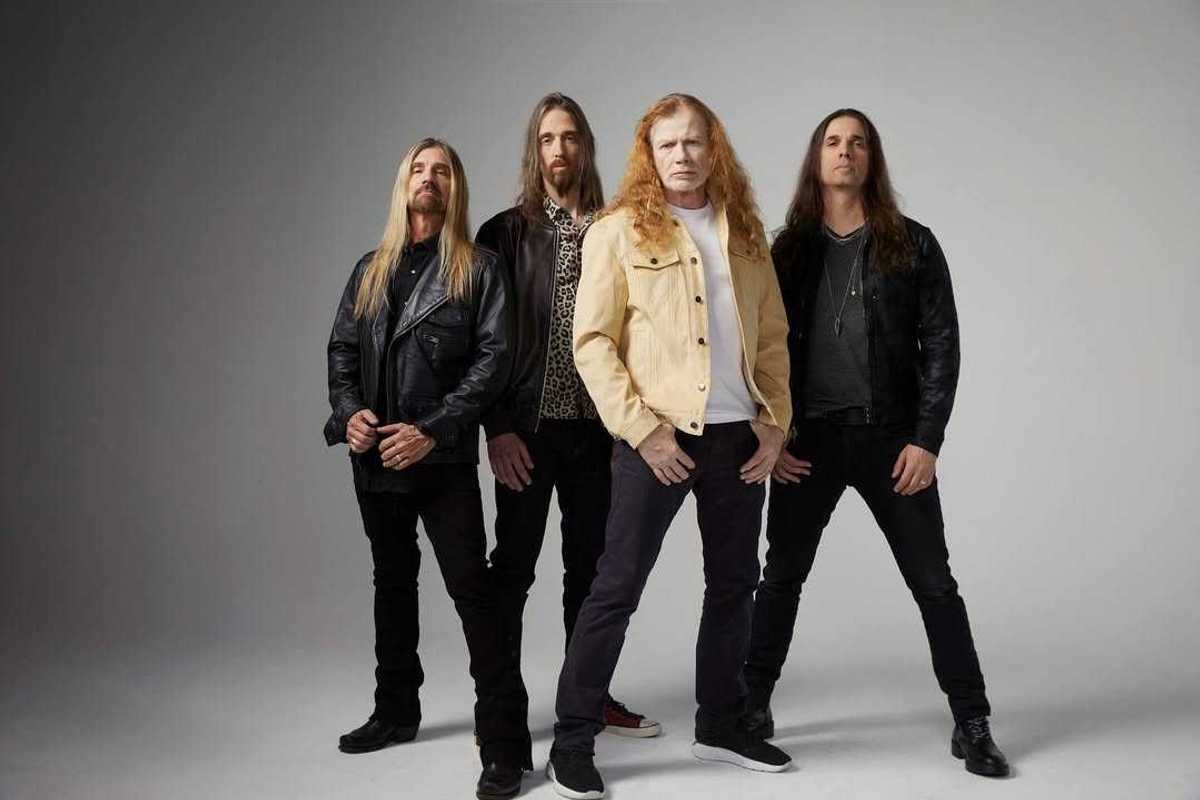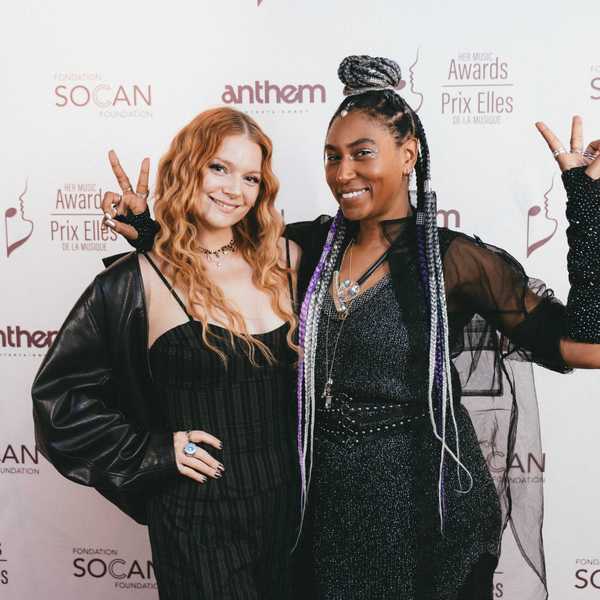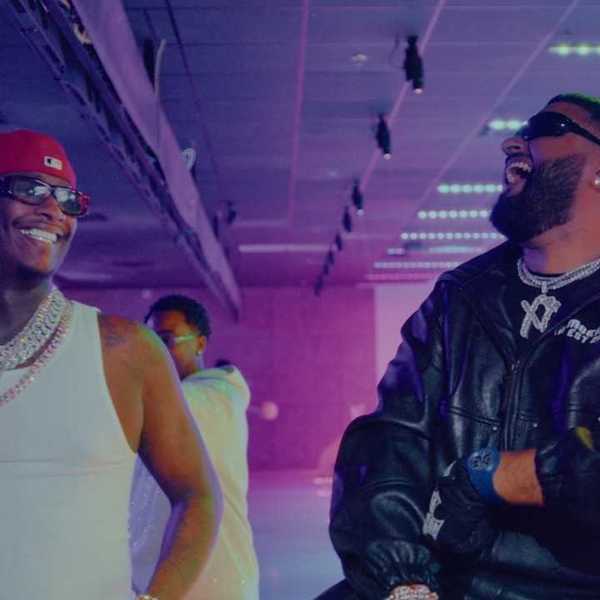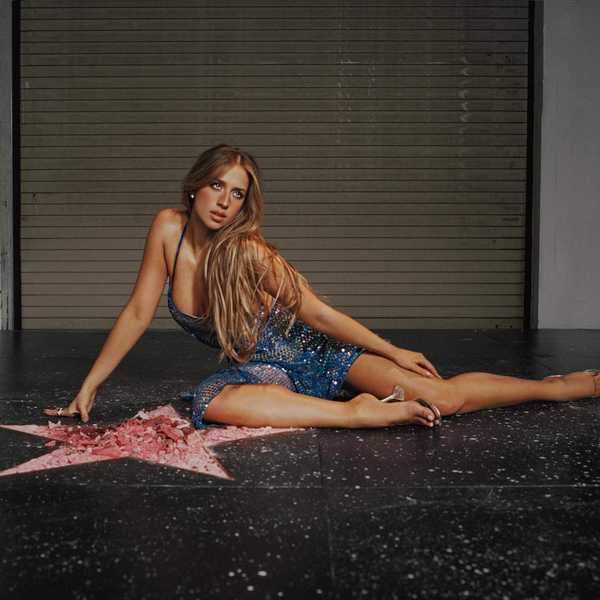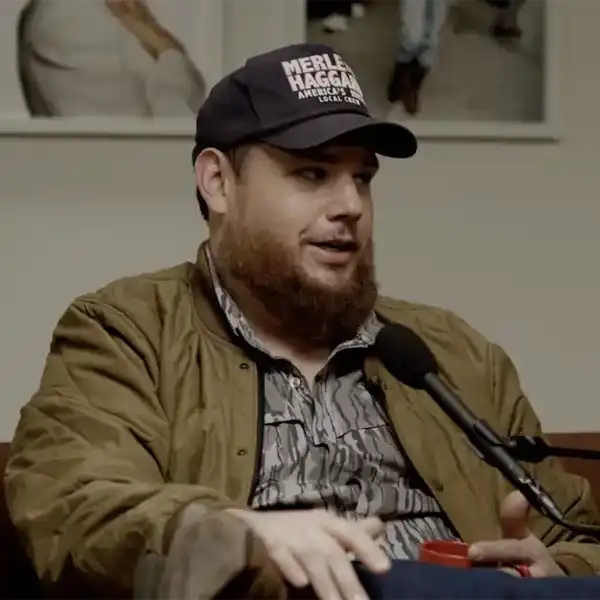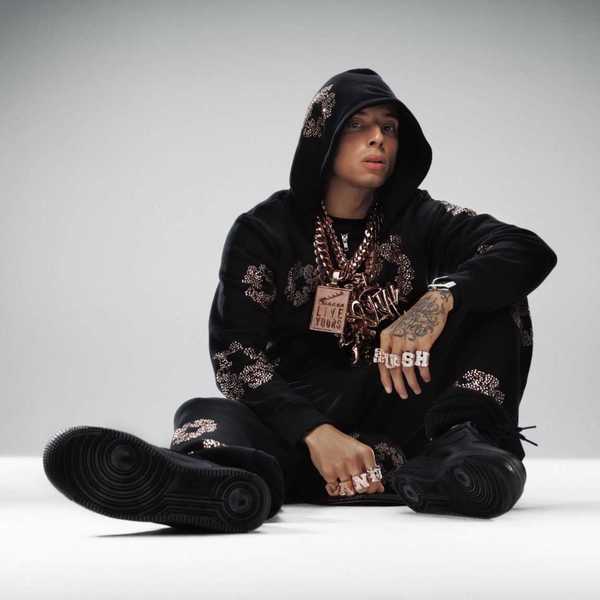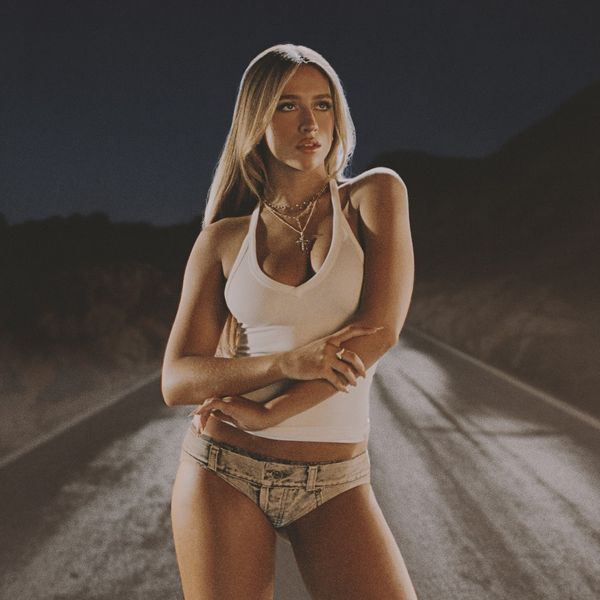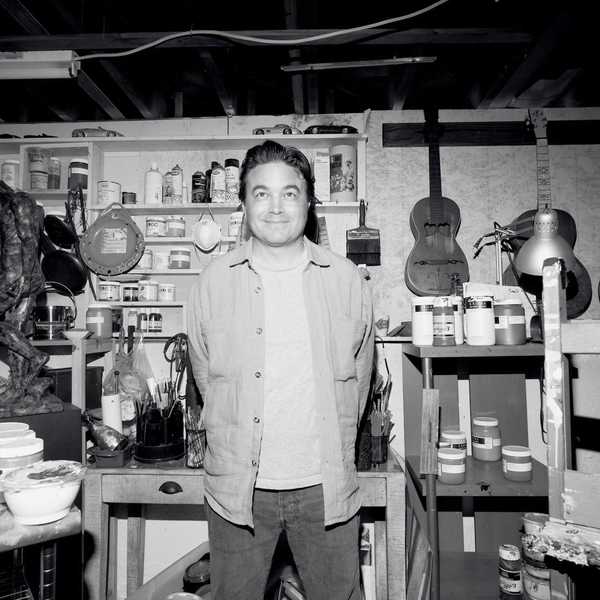Corey Hart Is A Dad With A Plan
Corey Hart is back in the news and is a central figure in Sunday's night's Juno Awards telecast. We gathered some intel on the boy in the box, and his never surrender campaign to pick up where he left off some 20 years ago.
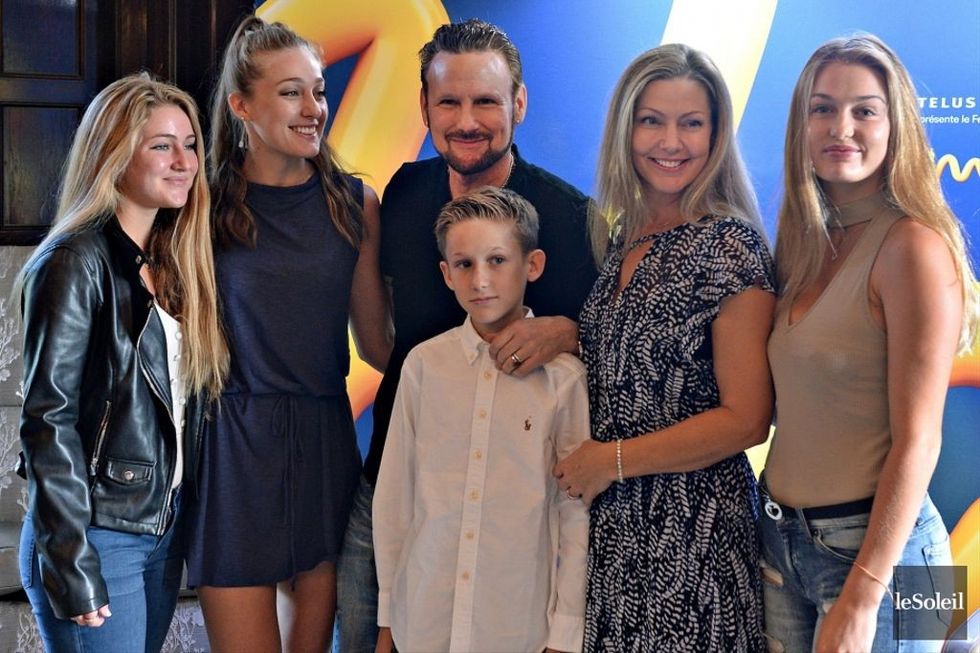
By David Farrell
Unless you’ve been on a different planet these past few months, you can’t have helped noticing Corey Hart’s name in the newspapers, online, on TV, and on the radio. The Montreal born singer-songwriter is staging his comeback after being a stay-at-home dad for the past 20 years.
The big hook for his return that has him talking up a storm with the media is his induction into the Canadian Music Hall of Fame, and his appearance Sunday night at the Juno Awards that are to be telecast live from London’s Budweiser Gardens.
There’s also the fact that he is releasing five new songs, produced by hitmaker Bob Ezrin, that segues into a 16-city summer comeback tour that has him performing in big arenas from St. John’s to Victoria.
I’ve had the pleasure of meeting and talking with Corey on several occasions. For those who haven’t had the pleasure, he comes across as genuine, interested and interesting, articulate, and low key. If you really listen carefully to him, you can also hear his absolute determination to do the very best he can and to succeed at whatever it is he has planned.
His determination is perhaps his greatest asset. At 11 he was singing for Tom Jones and Paul Anka. Before he was 20, he was gigging with Billy Joel’s band. These are not everyday chance encounters. It takes courage and drive to align the stars.
At age 21, he released his debut album that included Sunglasses at Night, a smash hit that boomeranged around the world. His follow-up album included Never Surrender that won him a Juno and paved the way for a career that included global tours, 16 million album sales and nine consecutive American chart hits. And if that weren’t enough, Celine Dion recorded a couple of his co-writes and that set The Boy in the Box up for life.
Terry Flood was there in the beginning, as co-owner of Aquarius Records, Montreal’s number one English-language record company with April Wine paying its bills.
“Corey walked into our office unannounced and asked to see me,” Flood recalls. “He had seen an ad in Billboard for April Wine and thought that as a company in his home town we might be interested in his music. He had a demo that he had recorded in New York. I was leaving the office so he left a copy which we later played and we all saw the potential.” He pauses, then adds: “Corey was very dedicated and worked hard to obtain the success he achieved.”
Another person who remembers Corey in the early days is Greg Torrington who, then, was music director at the influential Ottawa station, CHEZ-FM.
“When Sunglasses at Night was released, I was MD at CHEZ in Ottawa. We liked the song, but its similar synth riff to Eurythmics’ Sweet Dreams and the relatively unknown status of Corey made it a low priority for an out of the box first-week add for us. Couple that with the fact he was also not known as a live performer either; given the proximity of Ottawa to Montreal, most Montreal acts played Ottawa frequently. So, it came somewhat as a surprise when the station’s phone lines overflowed with requests for the song when it had had zero airplay in the market, and MUCH Music had yet to go on air with it. We surmised that this was perhaps due to an over-zealous promo department at Aquarius Records targeting us and postulated the theory back to them. They hadn’t run that marketing tactic by Corey, and he was not pleased. He took it upon himself to come to Ottawa and take me to lunch to heavily impress upon me that that was not how he wished for his career to kick off. We were impressed with his honesty and ambition, and his music became a mainstay on the station for years to come.
“Ottawa became a huge market for Corey - his summer performance at Lansdowne Park during the Central Canada Exhibition in 1985 became at the time his largest attended concert ever with an audience somewhere in the neighbourhood of 17,000. And in the sweltering heat of that summer show, it became the setting for him to do a live Christmas recording of “Rudolph The Red-Nosed Reindeer” a now collector’s item single!”
By 1985, Corey was starting to wonder where his life was leading him and then the good fortune of being in the right place at the right time slapped him in the face, again. The life-altering event took place where this story starts, but a lot earlier, at the Juno Awards.
As Corey recalls: “I was nominated for some awards (song of the year), and I was supposed to present Album of the Year on the show. On the way to the dress rehearsal, I was told that the plan had changed and I was going to be presenting the Video award. Listening to my inner voice, I thought, this doesn’t feel right, so I’m going to pass on that. They came back and said, ‘but we broadcast already in all the papers already that you’re going to be presenting an award on TV.’
“And I said, ‘I’m sorry – I’m a musician, and it doesn’t sit right with me to do the Video of the Year presentation.’ I stuck to my guns, and I said, ‘Honestly, I’m sorry. It’s a pass.’ So, they scrambled – and then five minutes before I show up at the venue for the dress rehearsal that I wasn’t going to be doing now because I wasn’t presenting, they said, ‘How about Group of the Year with a young singer from Québec named Julie Masse. She’s from your hometown. Do you feel good about that?”
“And I said, ‘yeah, that’s fine.’
“So, had I not said yes to Video of the Year, I would never have met her.
“We walked offstage. That’s the first time I laid eyes on her, and she laid eyes on me. We walked offstage when her manager grabbed me and said – I didn’t know who she was – he said, she’s a huge star in Québec – and Céline was the host of the Junos that year, and she was just starting to really break everywhere around the world – and the manager said, ‘Julie’s going to follow in her footsteps. I see the two of you together and I think there’s chemistry. I think you should write.’ I had never written for anybody else before. He was right about the chemistry.”
The attraction between them was immediate, and a month later she was pregnant, they married and went on to have four children together.
That fortuitous encounter was also the close of Corey’s first chapter as a pop star. For the next 20 years, he chose to be at home with the kids. Living in the Bahamas, they have also lived for spells in Spain and France and are now a trilingual family that is as tightly knit as any family can be. For years, by his own admission, he chose to keep his earlier stage life as quiet as was possible. As a pop star he immersed himself in the requirements of being all that his fans expected of him, and as a father, he immersed himself in the requirements that Julie and the kids expected of him.
The kids grew of age and Corey started to get the itch to fan fandom and perform, because that’s what singers do.
Two years ago, Corey was inducted into Canada’s Walk of Fame at Casa Loma in Toronto. Bob Ezrin, who has produced everyone from Pink Floyd to Alice Cooper to Andrea Bocelli, was at the event.
“We met Corey and Julie and 3 of their kids at a fundraiser for Canada’s Walk of Fame at Casa Loma in Toronto,” Ezrin told me over the phone from Detroit yesterday where he was producing an album with Alice. “Our table was next to theirs. I had never met Corey Hart before, although both of us have been in the music industry a very long time. They were very charming people, and we both have homes in New Providence Island (Bahamas). We chatted a bit and then it was time for the show.
“Lots of people got up on stage, and then Corey got up with Julie singing background. They did Sunglasses at Night, Never Surrender and one other song, and the performances blew me away. I turned to his kids and said ‘your dad is really good’ and they said ‘we know’ and I said ‘he should be doing this now’, and they said ‘we know’. As soon as Julie and he sat down, I said ‘listen, I know retirement and being a stay at home. Dad is a wonderful thing, but you’re an extremely talented guy. Not a lot of people have that sort of presence and that sort of voice, and you need to get out and start performing again.’
“I said ‘ask your kids, they want you to do it’, and I made it a personal crusade. When we got back to Nassau, we started going over to their house, and I just started working on him until he finally relented and said he would really consider it. And then one day he called and said we needed to talk, so he came over to my place, and we sat outside and he told me that he had made the decision to go back to work and he wanted to record–but only if I did it with him. That’s how I got roped in, in the nicest sort of way.”
“So, I agreed to do it. Corey had already spoken with Steve Coady and Steve Kane at Warner in Canada. He decided what would be good for him would be to start with an EP and to tie that to a tour.”
Ezrin pauses to consider a question I pop him about Corey, the individualist: "They have this presence and (as a family) have experienced a lot of different cultures. They speak three languages in the home, Spanish, French and English, and Corey’s commitment to the family is greater than anything I’ve ever seen from someone who does what he does for a living. He made the decision consciously that he did not want to miss watching his children grow up and he wanted to be a part of their upbringing. It’s a remarkable commitment. It takes an incredibly loving personality to do that.”
Warner Canada president Steve Kane is another Corey fan who has seen a deeper pool of emotion inside of him than is common.
“In all the years I’ve known Corey, I’ve wondered at the combination of sheer determination that is balanced by an incredible empathy. I’ve heard him impart words of wisdom to young artists. Telling them to believe in themselves, to listen to their gut because being able to look in the mirror is the one thing that they have control over, no matter how crazy it gets. I’ve seen him lean in and really listen while a fan pours out their heart, sharing their pain while letting him know that he helped them through it. And on top of all that, for a guy who pouts so much - he’s damned funny.”
Perhaps Corey’s biggest, most enthusiastic and supportive fan is journalist Karen Bliss.
“I am just a little biased,” she tells me. “I am a former fan girl–heck, a current one too. As a kid, I made him a t-shirt with his face on it, out of puff paint and I went down to the hotel to give it to him. Years later, I interviewed him for his Jade album (1998). I told him a story about how I became a music journalist because of him. Long story short, again, as a kid, I naively called up the Toronto Star to ask why there was no review of his El Mocambo show; I said he was going to be big. The person said to write a letter to the editor. Well, they didn’t print it but I used it to get my first writing gig.
“I told Corey this story and he always remembered it. We have since become pals. To me, he is a warm, funny, humble guy. He just loves talking to his fans and is always very respectful of media. He’s also quite hard on himself, which makes him always put on the best show possible.
She pauses before elaborating: “Let me say I am so happy he is getting inducted. I actually kept bugging and emailing (then CARAS head) Melanie Berry about inducting him, starting in 2010, but it takes a board to be onboard. Now, however, is the perfect time, with new music and an upcoming national tour. He really is just a lovely—and talented—guy.”
Corey’s almost blind determination, call it pig-headedness, can have its prickly side too, as Music Express publisher and chief writer Keith Sharp explains.
“He’s got a personality that either endears you to him or rubs you the wrong way. Alannah Myles had the same problem. The thing about Corey that Keith Brown at Aquarius (Records) used to say, from day one, was that he was very set and determined about how he was going to be successful and he never wavered. He was on a path, he stuck to it and if someone got in his way or doubted him, he had no time for them.
And he knew everyone. A classic story is that one of his first concerts was opening for Culture Club in Montreal and Kerry Doole reviewed the show and basically raved about Culture Club and kind of knocked Corey. About six or seven months later, Corey comes to our offices on Madison Avenue (in Toronto) and I walked him through and introduced him to everybody, and when I introduced him to Kerry he said ‘you’re the one who trashed me opening for Culture Club’ and of course Kerry’s squirming in his seat. Corey was able to throw back, word for word, the actual review. The fact that it meant so much to him, that one of his first reviews was negative, and he could recite word for word what that review was…well, that’s his personality. There’s no middle ground. Your either for or against him and I’ve seen that over all the years. I’ve interviewed him many times, I’ve seen him in New York and I’ve seen him in Los Angeles where he blew off major media because he had read something that was detrimental.
“Funnily enough there’s a video of him duetting with Shania Twain. I think it was in Montreal. Taylor Swift does the same thing with stars like Bryan Adams. He just took over on the stage and I thought to myself, he’s coming back. This was about four years ago. So, when he announced the tour, and the album I reminded him. I said ‘I saw it four years ago and there was no way that you weren’t going to come back and he laughed about that and said ‘you’re right’.
“The guy is a star and there's no getting around that fact."

